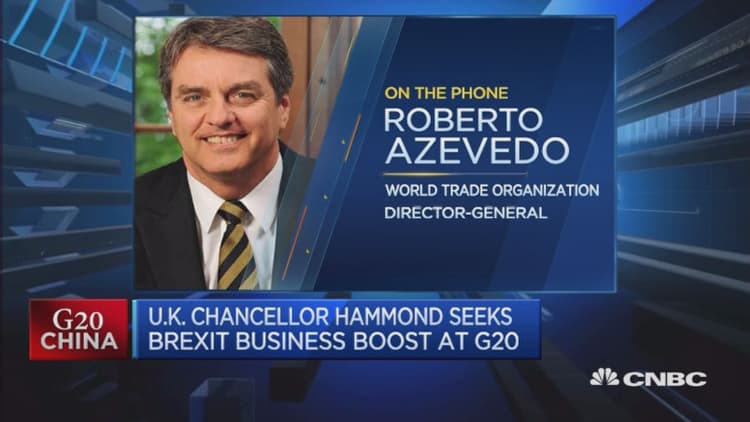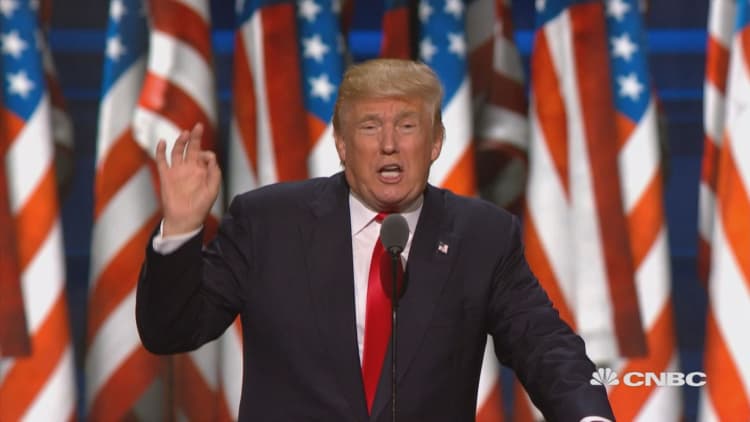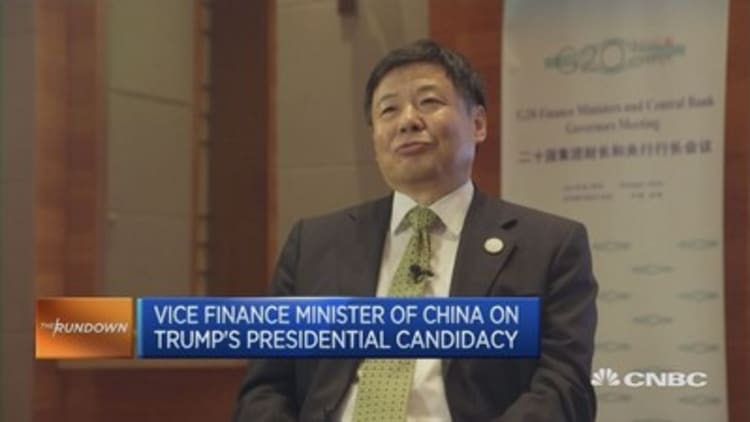
Anti-trade and anti-globalization rhetoric poses risks to global economic growth, the head of the World Trade Organization (WTO) told CNBC on Friday, as would-be U.S. President Donald Trump launched his campaign on a protectionist platform.
"I am concerned. I think that as far as trade is concerned, we are not worse than we were before but we are definitely not much better. We will be growing now at the slowest pace than the last 30 years," WTO Director-General Roberto Azevêdo said in a television interview.
"It is still sluggish and the problem is this new anti-trade rhetoric, anti-globalization rhetoric. It doesn't help because it may spell what is to come in terms of policies, so that is definitely bad news," he added.
Trump formally accepted the Republican presidential nomination on Thursday evening and ramped up his previous anti-globalization rhetoric in his acceptance speech. The billionaire businessman said "Americanism not globalization will be our credo" and added that "We (the U.S.) will never-ever sign bad trade deals."

He singled out China for particular criticism, with whom the U.S. had a goods trade deficit of $131 billion for the first five months of this year, according to the U.S. Census Bureau. China tops the U.S. as the world's biggest exporter and the U.S. is the top destination for its goods.
"We are going to enforce all trade violations against any country that cheats. This includes stopping China's outrageous theft of intellectual property, along with their illegal product dumping and their devastating currency manipulation," Trump declared on Thursday evening to a cheering crowd of supporters.
On Friday, Azevêdo said friction between China and the U.S. was inevitable, but should be managed in a way that benefited global trade.
"They are big partners — you are talking about the two largest trading partners in the world. They trade a lot with each other; they invest a lot in each other, so close relationships lead to friction. I don't think you can turn back on that. That relationship is only going to grow. It is about how to manage those frictions in a way that is not negative for global growth and trade growth," he told CNBC on Friday.

The WTO forecasts global trade will grow by a sluggish 2.8 percent this year, unchanged from 2015. This is seen increasing to 3.6 percent in 2017.
The International Monetary Fund said on Friday that the world had made too little progress on multilateral trade deals for over a decade.
"The pace of new trade policy initiatives at the global level has slowed notably since 2001. At the same time, new trade restrictions imposed since the global financial crisis have begun to weigh on global trade," it said in a note.
—With contribution from CNBC's Huileng Tan. Follow CNBC International on Twitter and Facebook.

